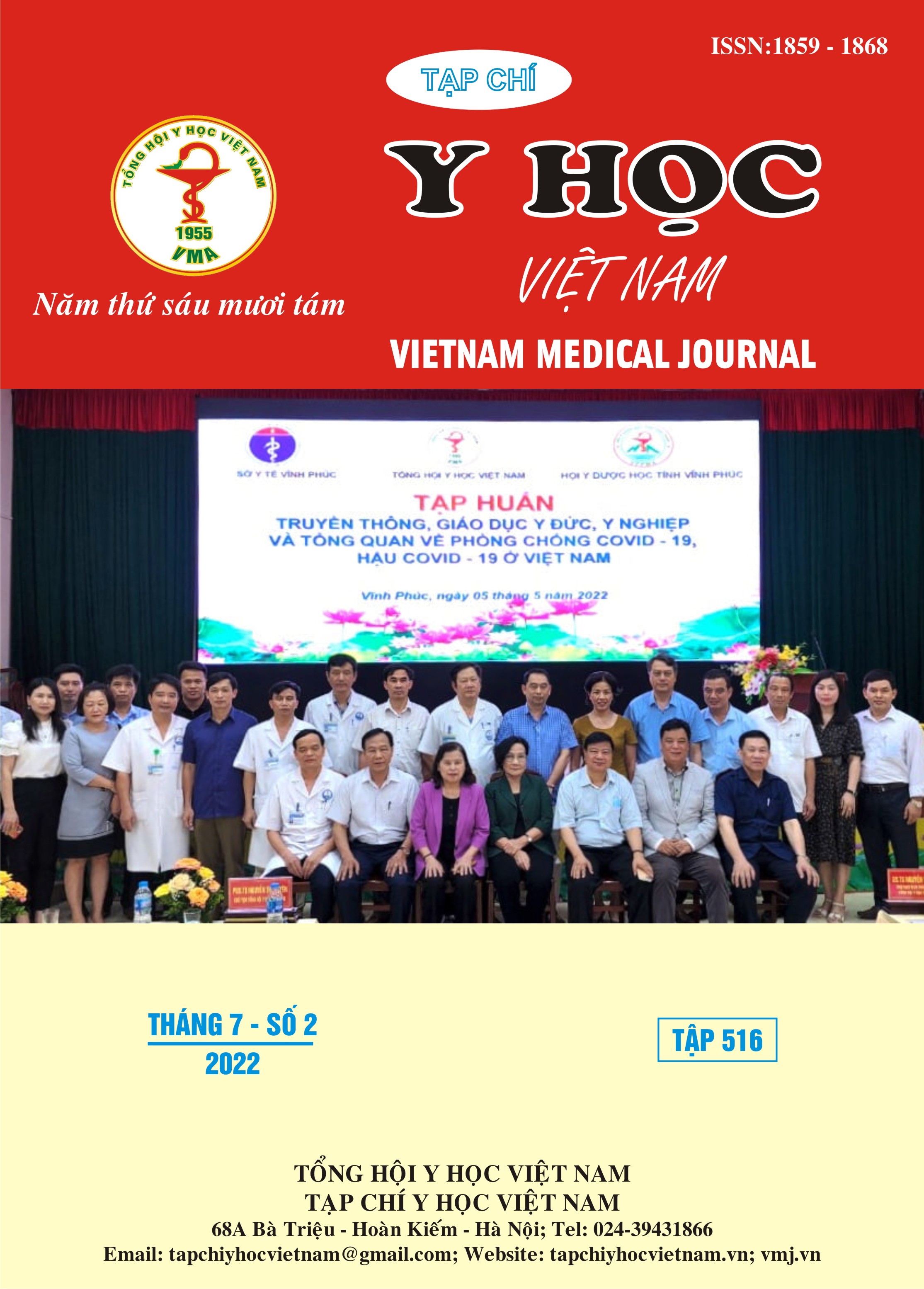DIET OF POST-OPERATIVE PATIENTS WITH COLORECTAL CANCER AT UNIVERSITY MEDICAL CENTER HO CHI MINH CITY
Main Article Content
Abstract
Background: The majority of colorectal cancer patients’ post-operative diets do not meet the recommendation for energy needs, energy-generating substances, vitamins and minerals, which would affect the immune system, increasing the risk of postoperative complications such as infection or wound leaks, less respond to treatment; increased costs and length of hospital stay. Objective: To investigate post-operative diet of colorectal cancer patients at the University Medical Center Ho Chi Minh City from 2020 to 2021. Methods: A cross-sectional study was conducted on 130 colorectal cancer patients who were scheduled for surgery at the Department of Gastroenterology, University Medical Center Ho Chi Minh City from October 2020 to March 2022, using face-to-face interviews with a structured questionnaire. Demographic characteristics, post-operative diets regarding energy, protein and routes of feeding were collected. Results: On the first day of feeding, energy was provided to patients via intravenous and oral routes, of which intravenous accounted for 73.1%. The total energy supply increased gradually per day, from an average of 607.3 kcal on the first day to 1291.6 kcal on the 7th day. The proportion of patients able to meet the energy needs recommended by the Ministry of Health gradually increased and is highest on the 5th, 6th and 7th day post-surgery. Similarly, the percentage of patients who meet protein needs also increased daily and reach a peak on day 7. Conclusion: Efforts should be made to ensure patients are fed with adequate energy, balance, sufficient vitamins and minerals before and after surgery to reduce the risk of post-operative malnutrition, enhance treatment response and quality of life.
Article Details
Keywords
Nourishment, colorectal cancer, post-operative
References
2. Beaton J, Carey S, Solomon MJ, Tan K-K, Young J. Preoperative Body Mass Index, 30-Day Postoperative Morbidity, Length of Stay and Quality of Life in Patients Undergoing Pelvic Exenteration Surgery for Recurrent and Locally - Advanced Rectal Cancer. Ann Coloproctology. 2014;30(2):83-87.
3. W-H, Cajas-Monson LC, Eisenstein S, Parry L, Cosman B, Ramamoorthy S. Preoperative malnutrition assessments as predictors of postoperative mortality and morbidity in colorectal cancer: an analysis of ACS-NSQIP. Nutr J. 2015;14.
4. Maurício SF, Xiao J, Prado CM, Gonzalez MC, Correia MITD. Different nutritional assessment tools as predictors of postoperative complications in patients undergoing colorectal cancer resection. Clin Nutr Edinb Scotl. 2018;37(5):1505-1511.
5. Nguyễn Thị Thanh. Thực trạng dinh dưỡng trước và sau phẫu thuật của bệnh nhân ung thư đại trực tràng tại bệnh viện Bạch Mai và Đại học Y Hà Nội năm 2016 - 2017. Luận văn thạc sỹ y học, Trường Đại học Y Hà Nội.
6. Chu Thị Tuyết. Hiệu quả dinh dưỡng toàn diện cho bệnh nhân phẫu thuật ổ - tiêu hoá mở có chuẩn bị tại khoa Ngoại bệnh viện Bạch Mai năm 2015. Luận án tiến sỹ y học, Viện vệ sinh dịch tễ Trung Ương.
7. Nguyễn Duy Hiếu. Tình trạng dinh dưỡng và chế độ nuôi dưỡng người bệnh phẫu thuật ống tiêu hoá tại khoa Ngoại bệnh viện Bạch Mai năm 2016. Luận văn thạc sỹ y học, Trường Đại học Y Hà Nội
8. Gustafsson UO, Scott MJ, Hubner M, et al. Guidelines for Perioperative Care in Elective Colorectal Surgery: Enhanced Recovery After Surgery (ERAS®) Society Recommendations: 2018. World J Surg. 2019;43(3):659-695.


